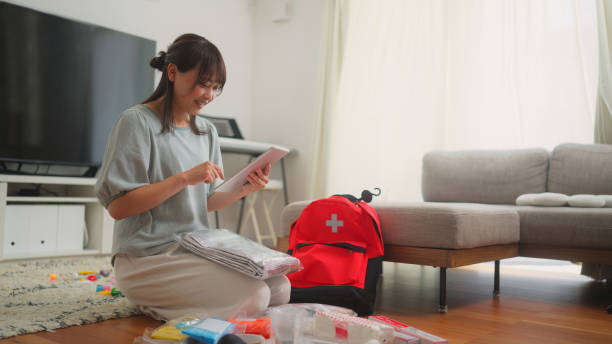10 Ways To Make Your Home More Prepared For Emergencies
Emergencies can strike at any time, often without warning, and being prepared can make all the difference. From natural disasters to unexpected power outages, having a well-prepared home can help you and your family stay safe and comfortable. Here are ten essential ways to ensure your home is ready for any emergency.
Contents
1. Invest in a Generator
During a power outage, a generator can keep essential appliances running, such as refrigerators, lights, and medical equipment. Choose a generator that suits your needs and ensure it’s regularly maintained. Portable generators are a good option for smaller homes, while standby generators can power larger homes automatically during outages. Learn more about your options to choose the right one for your home.
2. Create an Emergency Kit
Assemble a comprehensive emergency kit that includes:
- Water – At least one gallon per person per day for at least three days.
- Non-perishable food – A three-day supply for each family member.
- First-aid supplies – Bandages, antiseptics, medications, and other essentials.
- Flashlights and batteries – For light if the power goes out.
- Multi-tool – For various emergency repairs and tasks.
- Blankets and clothing – To stay warm if heating is unavailable.
Store your kit in an easily accessible location and check it regularly to ensure supplies are up to date.
3. Develop a Family Emergency Plan
Create a detailed emergency plan that includes emergency contacts, meeting points, evacuation routes, and a communication plan. Ensure every family member knows their role and practice the plan regularly so everyone can act quickly in an actual emergency.
4. Install Smoke and Carbon Monoxide Detectors
Install smoke detectors on every level of your home, especially near bedrooms. Carbon monoxide detectors are essential if you use gas appliances. Test these detectors monthly and replace batteries at least once a year. These devices can give you crucial early warning and save lives.
5. Secure Important Documents
In an emergency, having quick access to vital records can be crucial. Keep copies of important documents like identification (passports, driver’s licenses, birth certificates), financial records (bank statements, insurance policies, deeds), and medical information (prescriptions, health insurance details). Store these in a waterproof and fireproof safe or in a secure, off-site location like a bank safety deposit box. This ensures that even if your home is damaged, your critical information remains safe and accessible.
6. Prepare for Water Emergencies
If you live in a flood-prone area, taking steps to protect your home from water damage is essential. Keep a supply of sandbags on hand to block water entry points, install a sump pump in your basement to remove excess water, and elevate appliances like water heaters, furnaces, and electrical panels above potential flood levels. Regularly check your home’s drainage system and clean gutters to prevent water buildup. These measures can significantly reduce the risk of flood damage to your home.
7. Strengthen Your Home’s Structure
Enhancing your home’s ability to withstand disasters is a proactive step in emergency preparedness. Install storm shutters to protect windows from high winds and debris, reinforce entry doors with heavy-duty deadbolts and hinges, and ensure your roof is in good condition and securely fastened. Consider professional evaluations to identify and address structural weaknesses. Making these improvements can help your home endure severe weather conditions and reduce the need for costly repairs.
8. Maintain Your Vehicle
Your vehicle is a crucial part of your emergency preparedness, especially if you need to evacuate quickly. Keep your vehicle in good working condition by regularly checking the oil, tires, brakes, and other essential systems. Maintain at least half a tank of gas at all times and include an emergency kit in your vehicle with items like jumper cables, a spare tire, and a roadside assistance kit. Ensuring your vehicle is ready to go at a moment’s notice can make a significant difference in an emergency.
9. Stock Up on Basic Tools and Materials
Having a selection of basic tools and materials can help you handle minor repairs during an emergency. Keep a well-stocked toolkit with screwdrivers, wrenches, pliers, a hammer, nails, and screws. Duct tape and plastic sheeting are useful for temporary repairs and sealing. Additionally, ensure you have at least one fire extinguisher and know how to use it. These tools can help you manage small issues before they become major problems, maintaining safety and functionality in your home.
10. Stay Informed
Keeping yourself informed about potential emergencies is crucial. Sign up for local weather alerts on your phone, know the locations of local shelters and resources, and download apps that provide real-time updates and emergency information.
Final Thoughts
Preparing your home for emergencies is not just about having the right supplies, but also about being informed and having a plan.

